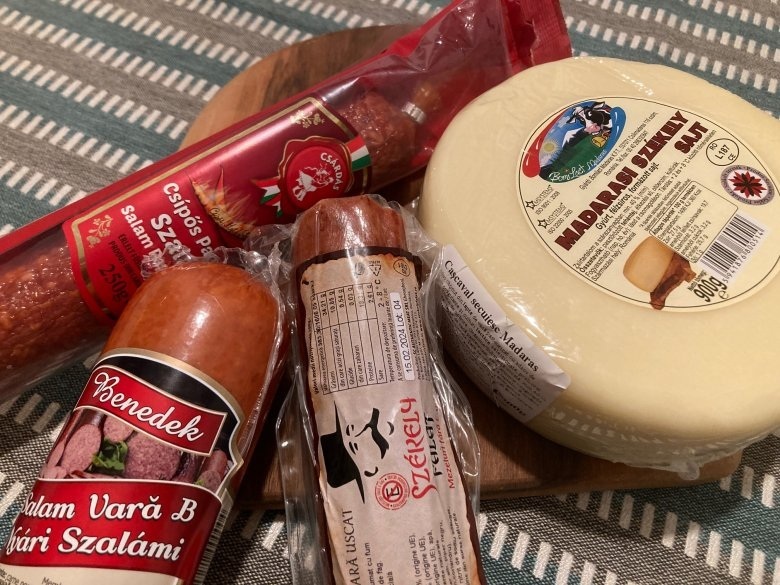The method is also used by companies with Romanian interests, reported the Transylvanian public life portal Krónika.
The article reminds:
nine years ago, consumer protection fines were imposed in Kovászna county for Hungarian labels, but now Hungarian-language labels have become a proven practice in Romania. This may be related to the fact that food labeled in Hungarian is usually sold at a higher price in stores
- writes the author, who also asked food manufacturers about this.
It illustrates with numerous examples that, in addition to products from Hungary and Székelyföld, Romanian companies in Bucharest also use Hungarian labels. As an example, he cites the "csárdás" salami range produced by the largest Romanian butcher's distributor, Cris-Tim. It is offered for purchase with a red-white-green ribbon packaging and a larger Hungarian and smaller Romanian inscription on the front of the label. The "family moments" dry pasta produced by the joint-stock company MP Baneasa-Paste in Ilfov County, near Bucharest, is also packaged in red, white and green.
The Madarasi Székely cheese, produced by Bomilact Madaras Kft., is also labeled in Hungarian, and a description in Romanian can be read on the self-adhesive label stuck to its side. According to company manager Loránd Bogács, the Kaufland sales associate complied with the request by starting to distribute the products originally intended for Hungary and labeled accordingly in Romania.
He added that the Hungarian label was primarily intended to appeal to Hungarian customers in Transylvania, from which the stores in Transylvania are taken to the Torda warehouse, while products labeled in Romanian beyond the Carpathians are sent. According to the company manager, the Hungarian label appealed to a new group of customers.
The paper also mentions the "székely falat" brand found in Mega Image stores, Authentic Meat kft. from Gyergyószentmiklós. on its butcher products, the logo evoking Uncle Székely with a big mustache and a hat refers to the Székely identity. Commercial director Nicoleta Ilas said: the Benedek family from Győrgyó parted ways with the meat factory in 2021, but the brand name and recipes were kept by the new investors, and their products are marketed under this name throughout Romania and abroad.
According to the director, it is not so much the label as the quality of the goods that attracts customers.
"Products produced in Székelyföld are in demand on the market. Maybe it's because the people of Székely are consistent, they know what they're doing," he said. He said: they also tried to market the Székely snacks under the Romanian name - "bunatati din secuime" (Székely land delicacies) - but the Hungarian brand name proved to be stronger.
Zoltán Kovács, the co-owner of Gyergyószentmiklós Artimpex Kft., also reported that all their goods are labeled in Romanian and Hungarian, and they are also sold in stores beyond the Carpathians. "If they see the Hungarian label on a product, they reach for it in Bucharest too, because it means quality to them," he said. He also cited a survey of the company, according to which 70 percent of customers are looking for Székelyföld and traditional products.
MTI
Featured image: Chronicle













